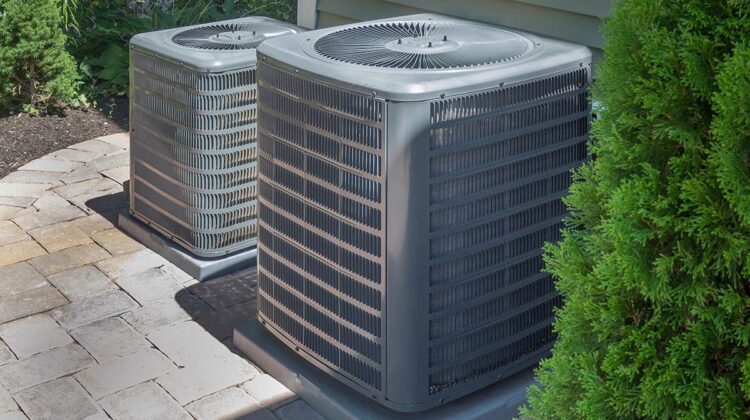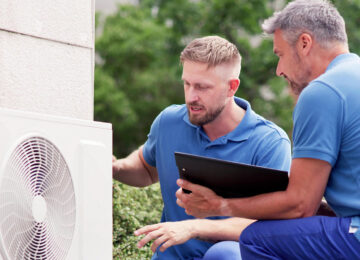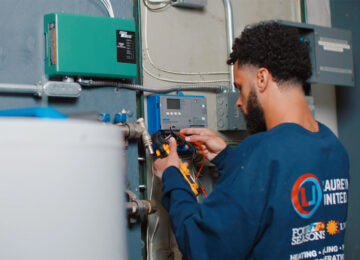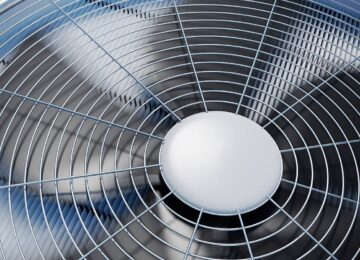When scouting a new air conditioner or experiencing an issue with their current system, one of the more frequent inquiries homeowners pose is, “How long do AC units typically last?” While most HVAC companies strive to make their products dependable through thorough testing and optimization, this answer can be intricate.
It’s difficult to provide a concrete answer as the life expectancy of an air conditioner can vary significantly due to many factors. These include the quality and performance of its parts, installation procedures by technicians, climate conditions, personal comfort preferences and maintenance practices. With appropriate attention given to these components in your specific situation, you could extend the lifespan of your system for years! When faced with a sizable issue, deciding to repair or replace your air conditioner can add years of comfort if you elect for a major component replacement. On the other hand, trading it in for brand-new equipment could ultimately mean sacrificing its lifespan.
All of the previously mentioned aspects and more can have a significant impact on how long your AC unit will last. Every system is different, but with diligent maintenance and care, you can expect 15-20 years of optimal cooling from a new energy efficient air conditioner. While it’s tough to determine when an AC should be replaced for good, this estimate leaves homeowners feeling confident that their investment in a quality HVAC system was worth every penny!
Factors Impacting You Air Conditioners Useful Life
How long do AC units last? When does its useful lifespan come to an end? Much like your car, HVAC systems require routine maintenance and minor repairs. Some homeowners think that once a unit stops running outside of warranty coverage it’s time for one fresh appliance while others are willing to fix their existing system despite the cost. Repair or replacement influences the life expectancy of an AC unit – so what will you decide upon?
In addition to that, the longevity of air conditioners is also determined by:
- Ensuring the highest quality installation and exact sizing is essential.
- From cozy gratification to thermostat adjustments, and even system deterioration – personal comfort preferences are paramount.
- Incessant humidity is just one of the many climate issues we face today.
- Excessive saltiness in the air, as well as other airborne corrosive agents, can pose a serious threat to air quality.
- Consistent upkeep
Rate Of Use
If you want to get a better understanding of the longevity of an air conditioner, then it’s best to ask “how long do ACs last in your region?” An air conditioning system which is used more than average will naturally experience higher levels of wear and tear compared to one that is not used as much. For instance, let’s take two identical AC systems and install them in different areas: The North with cool summers versus the South with hot temperatures and high humidity. Clearly, we can expect that the unit placed in northern area won’t accumulate as many hours or start/stop cycles compared to its counterpart located down south!
Individual preferences play a role too. For instance, if one household keeps their thermostat constant at 70⁰ F throughout the summertime, then that air conditioning system will probably be running more often than the family residing across the street who settle for 78⁰ F. In both cases of similar maintenance schedules over 15 years, such usage discrepancy is significantly multiplied.
Level Of Upkeep
To extend the lifespan of your air conditioner, best practice is to follow maintenance tips regularly. Have you had an HVAC technician come out for a tune-up lately? Are you replacing and inspecting the filters periodically? Is there leaves, mulch or dirt on the exterior unit that needs clearing up? Answers to these questions can give insight into how well maintained your AC system really is. With some TLC it could be performing better than ever!
To ensure peak performance and longevity of your air conditioning unit, it is highly recommended to follow through with regular maintenance. The average homeowner can easily check the filter and swap it out when necessary; however, a professional HVAC technician will dive further into the system by cleaning and inspecting every component from compressors to condensate drains. Additionally, they can make minor adjustments for better efficiency as well as preemptive repairs that could save you some significant money in costly repairs.
Exposure To The Elements
Sited outside, a HVAC system’s condensing unit is exposed to the weather all year round. Depending on where you live and your air quality, it might take an extra toll from being in such harsh conditions. Salty sea air near coasts can be particularly damaging for the condensing coil of an outdoor unit over time; while these machines are designed with durability in mind, how long they must endure these elements and how extreme those conditions become can cause damage that affects their life expectancy.
Make sure to regularly clean the coils of your outdoor AC unit in order to defend and prolong its lifetime. Physically clear out any leaves, mulch, trash or other items that may be accumulating around it as these can draw moisture within and damage the unit. If you’re located near a coastal area, certain producers offer models tailored for salty, corrosive air which are especially effective there.
Although it might seem like a smart idea to protect your AC unit during the cold season with a cover, plastic covers can become hazardous. They trap moisture and mildew inside, leading to corrosion and rust of your outdoor unit. If you do decide to use a cover for protection, make sure that it is made from breathable material that won’t damage the inner workings of your AC system or just opt for covering only its top portion which will permit air passage through the sides.




